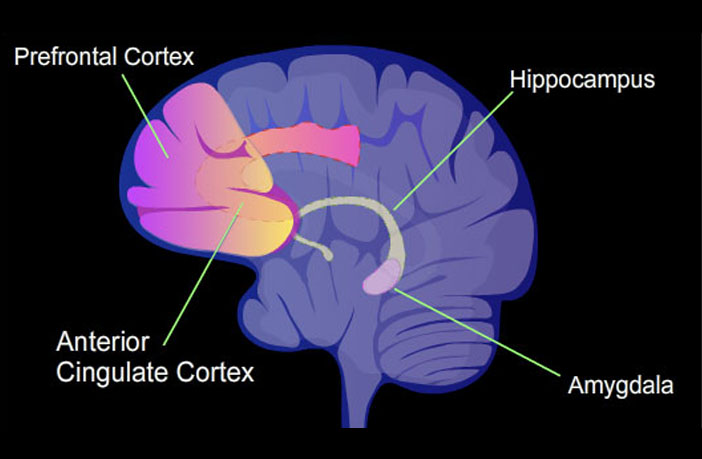Clinically depressed adolescents have decreased functional connectivity between several brain regions involved in emotion processing, but increased connectivity between brain regions known to be involved in rumination, according to a new study in Psychiatry Research: Neuroimaging.
Category Archives: medication
Common drugs used to treat depression, epilepsy and incontinence ‘could increase the risk of DEMENTIA by almost half because they damage crucial brain cells’
A common type of prescription medicine has been linked to an almost 50 per cent higher chance of getting dementia.
High antidepressant use could lead to UK public health disaster
Antidepressants are meant to make things better. But the increasing reliance on them in the UK could be a public health disaster in the making, campaigners are warning. Evidence is growing that people struggle to stop taking antidepressants once they have started, and that the drugs could even prolong symptoms of low mood and trigger other mental health problems.
Neurontin and Lyrica are a Death Sentence for New Brain Synapses : Shocking Study
by Ann Blake-Tracy
A shocking study shows that these two drugs block the formation of new brain synapses1, drastically reducing the potential for rejuvenating brain plasticity – meaning that these drugs will cause brain decline that apparently robs one of the ability to rebuild. The study demonstrating this type of brain damage with these two drugs came out in 2009 but apparently the media has been very lax in getting any of this information to the public – most likely because they do not want to jeopardize their advertising income from this company.
Is everything you think you know about depression wrong?
In the 1970s, a truth was accidentally discovered about depression – one that was quickly swept aside, because its implications were too inconvenient, and too explosive. American psychiatrists had produced a book that would lay out, in detail, all the symptoms of different mental illnesses, so they could be identified and treated in the same way across the United States. It was called the Diagnostic and Statistical Manual. In the latest edition, they laid out nine symptoms that a patient has to show to be diagnosed with depression – like, for example, decreased interest in pleasure or persistent low mood. For a doctor to conclude you were depressed, you had to show five of these symptoms over several weeks.
New research found antidepressants may increase risk of early death
Psychiatrists 50 years from today may look back and ask, did the drugs they used to treat brains harm the body?
Controversial new research suggests antidepressants dispensed by the millions in Canada increase the risk of dying early.
High Levels of Serotonin Found in People with Social Anxiety Disorder
People with social anxiety disorder produce too much of the neurotransmitter serotonin, not too little as was previously believed, according to a new study published in the online JAMA Psychiatry.
High antidepressant use could lead to UK public health disaster

BSIP/UIG via Getty
Antidepressants are meant to make things better. But the increasing reliance on them in the UK could be a public health disaster in the making, campaigners are warning. Evidence is growing that people struggle to stop taking antidepressants once they have started, and that the drugs could even prolong symptoms of low mood and trigger other mental health problems.
Continue reading
Why Antidepressants Cause Brain Damage, Breast Cancer, and Early Mortality
When you see a headline like this in the news, “Anti-inflammatory Drugs Reduce the Effectiveness of SSRI Antidepressants,” what does it make you think? The impression is that if you are taking an SSRI then you shouldn’t take any pain pills if you want the antidepressants to work, which is the clear message of the press release1 that accompanied the study. This means that SSRI antidepressants must be “working” by some type of inflammatory method.
Common antidepressant may change brain differently in depressed and non-depressed people

Detail of image by ashley rose / flickr
A commonly prescribed antidepressant may alter brain structures in depressed and non-depressed individuals in very different ways, according to new research at Wake Forest Baptist Medical Center.
The study — conducted in nonhuman primates with brain structures and functions similar to those of humans — found that the antidepressant sertraline, a selective serotonin reuptake inhibitor (SSRI) marketed as Zoloft, significantly increased the volume of one brain region in depressed subjects but decreased the volume of two brain areas in non-depressed subjects.

